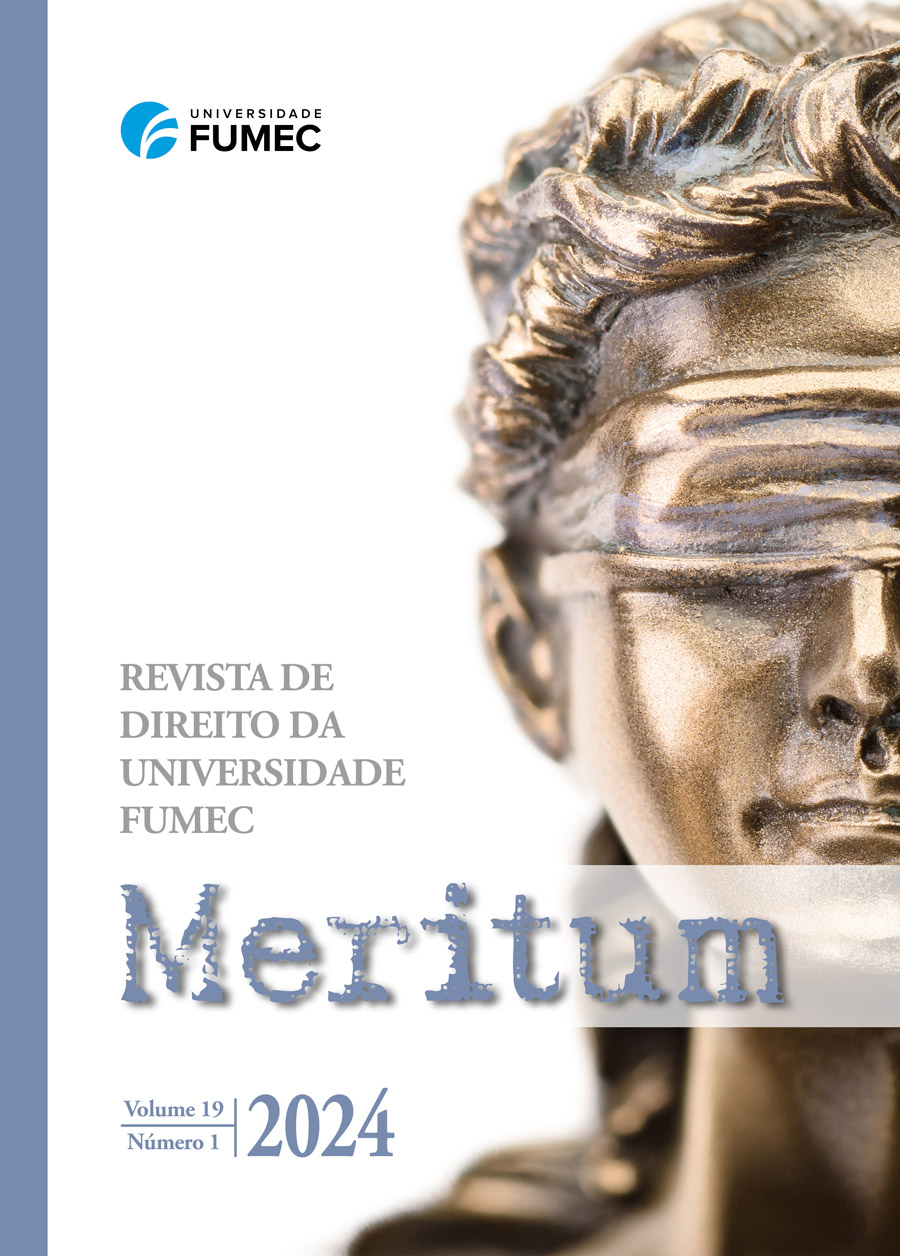Private Autonomy and the Protection of Human Rights
Need for conventionality control
DOI:
https://doi.org/10.46560/meritum.v19i1.9481Abstract
reality of the state, leading the direction of the economy and violating human rights, without being properly identified. As an example of this premise, there are the tragedies that devastated Mariana and Brumadinho. These sad events demonstrated how harmful actions of some companies, protected by confusing legislation, escape their responsibilities and cause irreparable damage. In view of this, this article analyzes the scope of private autonomy in the face of the impunity of these companies that judge themselves above the laws. It is understood that the responsibility for the risks generated lies exclusively with the State, due to the lack of supervision or intervention in these companies. Furthermore, it is understood that there is a need to establish a hermeneutical dialogue between national and international courts, based on the International Human Rights System, to correct such misinterpretation of private autonomy. Finally, it is concluded that private autonomy cannot be denied, but rather must be limited. This is because, as demonstrated throughout the work, the myth of private autonomy reinforces the lack of responsibility of companies, of all dimensions and nationalities, for their actions that violate human rights. In addition, there is a need for a hermeneutics that has as its starting point the locules of the oppressed and not the oppressor.
Downloads
Published
Issue
Section
License
Autores que publicam nesta revista concordam com os seguintes termos:
- Autores mantém os direitos autorais e concedem à revista o direito de primeira publicação, com o trabalho simultaneamente licenciado sob a Licença Creative Commons Attribution que permite o compartilhamento do trabalho com reconhecimento da autoria e publicação inicial nesta revista;
- Autores têm autorização para assumir contratos adicionais separadamente, para distribuição não-exclusiva da versão do trabalho publicada nesta revista (ex.: publicar em repositório institucional ou como capítulo de livro), com reconhecimento de autoria e publicação inicial nesta revista;
- Autores têm permissão e são estimulados a publicar e distribuir seu trabalho online (ex.: em repositórios institucionais ou na sua página pessoal) a qualquer ponto antes ou durante o processo editorial, já que isso pode gerar alterações produtivas, bem como aumentar o impacto e a citação do trabalho publicado (Veja O Efeito do Acesso Livre).






